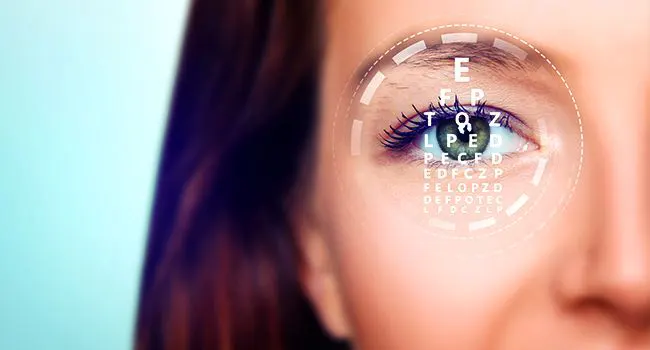Follow these simple guidelines for maintaining healthy eyes well into your golden years. You can do many things to keep them healthy and make sure you’re seeing your best. Follow these simple guidelines for maintaining healthy eyes well into your golden years.
You might think your vision is fine or that your eyes are healthy, but visiting your eye care professional for a comprehensive dilated eye exam is the only way to really be sure. When it comes to common vision problems, some people don’t realize they could see better with glasses or contact lenses. In addition, many common eye diseases, such as glaucoma, diabetic eye disease, and age-related macular degeneration, often have no warning signs. A dilated eye exam is the only way to detect these diseases in their early stages. During a comprehensive dilated eye exam, your eye care professional places drops in your eyes to dilate, or widen, the pupil to allow more light to enter the eye—the same way an open door lets more light into a dark room. This process enables your eye care professional to get a good look at the back of the eyes and examine them for any signs of damage or disease. Your eye care professional is the only one who can determine if your eyes are healthy and if you’re seeing your best.
90% of blindness caused by diabetes is preventable. Ask your health care team to help you set and reach goals to manage your blood sugar, blood pressure, and cholesterol—also known as the ABCs of diabetes. The goal set for many people is less than 7% for this blood test, but your doctor might set different goals for you.
High blood pressure causes heart disease. The goal is less than 140/90 mmHg for most people, but your doctor might set different goals for you. LDL or “bad” cholesterol builds up and clogs your blood vessels. HDL or “good” cholesterol helps remove the “bad” cholesterol from your blood vessels. Ask what your cholesterol numbers should be.
Talk to your family members about their eye health history. It’s important to know if anyone has been diagnosed with an eye disease or condition, since many are hereditary. This information will help to determine if you’re at higher risk for developing an eye disease or condition. You’ve heard that carrots are good for your eyes. But eating a diet rich in fruits and vegetables—particularly dark leafy greens, such as spinach, kale, or collard greens—is important for keeping your eyes healthy, too.i Research has also shown there are eye health benefits from eating fish high in omega-3 fatty acids.








